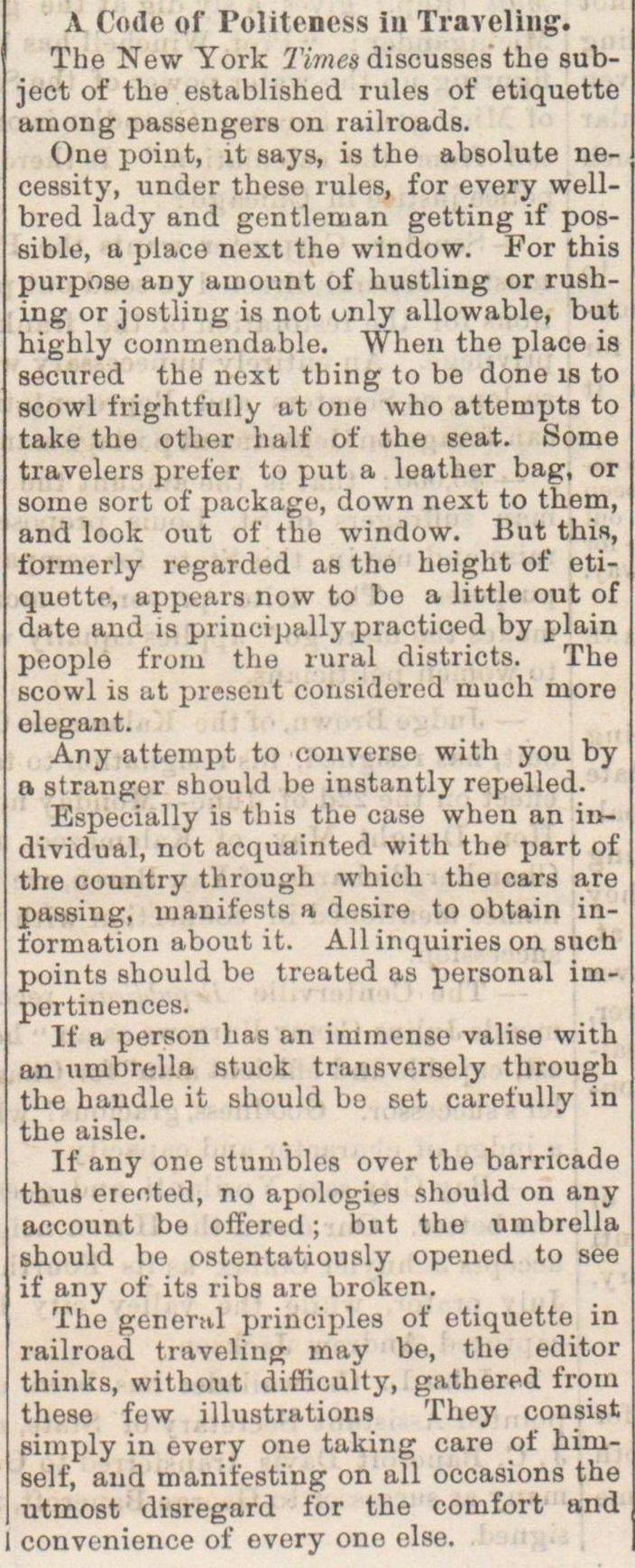A Code Of Politeness In Traveling

The New York 2i?esdiscusses the subject of the established rules of etiquette among passengere on railroads. One point, it says, is the absolute necessity, under these rules, for every wellbred lady and gentleman getting if possible, a placo next the window. For this purpose auy aniount of hustling or rushing or jostliug is not uiily allowable, but highly coininendable. When the place is secured the ncxt thing to be done is to scowl frightfully at one vvho attempts to take the otlier half of the seat. Some travelers prefer to put a leather bag, or some sort of packagu, down next to them, and look out of the window. But this, formerly regarded as the height of etiquette, appears now to bo a little out of date and is priucipally practiced by plain pnople from the ïural districts. The scowl is at present considered much more elegant. Any attempt to converse with you by a stranger should be instantly repelled. Especially is this the case when an individual, not acquainted with the part of the country through which the cars are passing, manifests a dcsire to obtain information about it. Allinquiries on such points should bu troated as personal importinences. If a person has an inimenso valise with an umbrella stuck transversely through the handle it should bo eet carefully in the aisle. If any ono stumbles over the barricade thus erected, no apologies should on any account be offered ; but the umbrella should be ostentatiously opened to see if any of its ribs are broken. The general principies of etiquette in railroad traveling may be, the editor thinks, without difficulty, gathered from these few illustrations They consist siinply in evory one taking care of himself, and manifesting on all occasions the utmost disregard for the comfort and I convcnience of every ono clse.
Article
Subjects
Old News
Michigan Argus